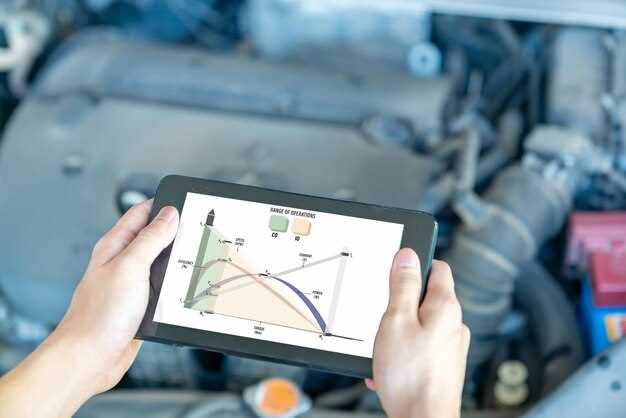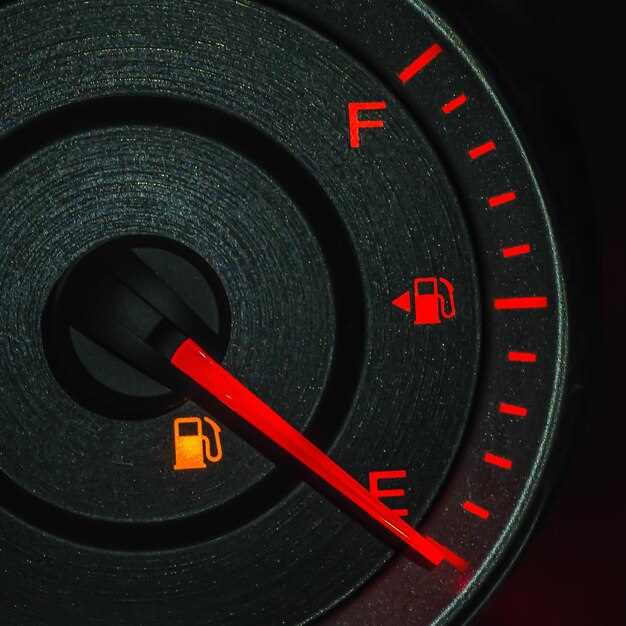
How to Improve Fuel Efficiency with Maintenance
- Arthur Rodriquez
- 0
- Posted on

In today’s world, where fuel prices are consistently rising, maximizing fuel efficiency has become a priority for many vehicle owners. Understanding the connection between proper maintenance and fuel economy can lead to significant savings over time. This article will provide invaluable tips to help you maintain your vehicle, ultimately enhancing its fuel efficiency and reducing unnecessary costs.
Regular maintenance is key to ensuring that your vehicle operates optimally. Over time, components such as filters, spark plugs, and tires can wear out or become less effective, leading to decreased fuel efficiency. By adhering to a disciplined maintenance schedule, you can keep your vehicle in top shape and ensure it consumes fuel efficiently.
Additionally, minor adjustments and practices can yield substantial improvements in fuel consumption. For instance, keeping your tires properly inflated, changing oil regularly, and ensuring that your engine is tuned can all contribute to maximizing the efficiency of your fuel use. Embracing these simple yet effective tips will not only benefit your wallet but also contribute to a greener environment.
Regularly Check and Replace Air Filters for Optimal Performance

Air filters play a crucial role in maintaining your vehicle’s fuel efficiency. Regularly checking and replacing these filters ensures optimal performance and longevity of the engine. Here are some essential tips to help you maximize fuel efficiency through proper air filter maintenance:
- Inspect Regularly: Examine your air filter every 12,000 miles or according to the manufacturer’s recommendations. A clean air filter allows for an efficient airflow, improving fuel combustion.
- Know the Signs: If you notice a decrease in acceleration, lower fuel efficiency, or unusual engine sounds, it may indicate a clogged air filter. Time for a replacement!
- Choose Quality Filters: Invest in high-quality air filters. Opt for OEM (Original Equipment Manufacturer) filters or reputable brands that provide superior filtration capabilities.
- Clean or Replace: Depending on the type of air filter, some can be cleaned and reused. However, most will need replacement every 15,000 to 30,000 miles to ensure efficiency.
- Consider Driving Conditions: If you drive in dusty or polluted environments, you may need to check and replace your air filter more frequently to maintain optimal fuel efficiency.
In summary, regularly checking and replacing air filters is vital for maintaining optimal vehicle performance and maximizing fuel efficiency. By following these tips, you help ensure that your engine runs smoothly and efficiently.
Maintain Proper Tire Pressure to Enhance Fuel Consumption
Maintaining the correct tire pressure is crucial for maximizing fuel efficiency in your vehicle. Under-inflated tires create increased rolling resistance, causing the engine to work harder and, subsequently, consume more fuel. On the other hand, over-inflated tires can lead to uneven wear and reduced traction, which also negatively impacts fuel consumption.
Regularly checking tire pressure helps ensure optimal performance. It is advisable to measure tire pressure at least once a month and before long trips. Always refer to the vehicle’s owner manual or the placard located on the driver’s side door for the recommended pressure levels.
Driving on properly inflated tires not only enhances fuel efficiency but also contributes to safer handling and a more comfortable ride. Furthermore, maintaining the right tire pressure can extend the lifespan of your tires, leading to fewer replacements and reduced costs over time.
In summary, keeping tires properly inflated is a simple yet effective way to improve fuel efficiency. This effort not only benefits your wallet by reducing fuel expenses but also supports environmental sustainability by lowering emissions associated with increased fuel consumption.
Schedule Routine Engine Inspections to Identify Potential Issues

Regular engine inspections are essential for maintaining optimal fuel efficiency. By addressing potential problems before they escalate, vehicle owners can enhance the longevity of their engines and save money on fuel costs. A well-maintained engine operates more smoothly and utilizes fuel more effectively, ensuring that drivers get the most out of every gallon.
During routine inspections, technicians can detect issues such as leaks, worn components, and irregularities in engine performance. Identifying these issues early enables timely repairs, reducing the risk of more significant damage that can lead to decreased fuel efficiency. For instance, a malfunctioning oxygen sensor can cause the engine to burn more fuel than necessary, significantly impacting overall efficiency.
Moreover, inspections allow for the assessment of the engine’s air filters and spark plugs. A clogged air filter restricts airflow, resulting in a richer fuel mixture that reduces efficiency. Similarly, worn spark plugs can lead to incomplete combustion, decreasing an engine’s power and efficiency. Regular checks and replacements as needed contribute to a well-tuned engine, promoting both performance and fuel conservation.
Establishing a routine schedule for engine inspections not only aids in identifying potential issues but also fosters a proactive approach to vehicle maintenance. Making this practice a priority ensures that drivers enjoy a smoother ride, reduced emissions, and, most importantly, improved fuel efficiency over time. By investing in regular inspections, vehicle owners pave the way for significant savings and enhanced engine performance.